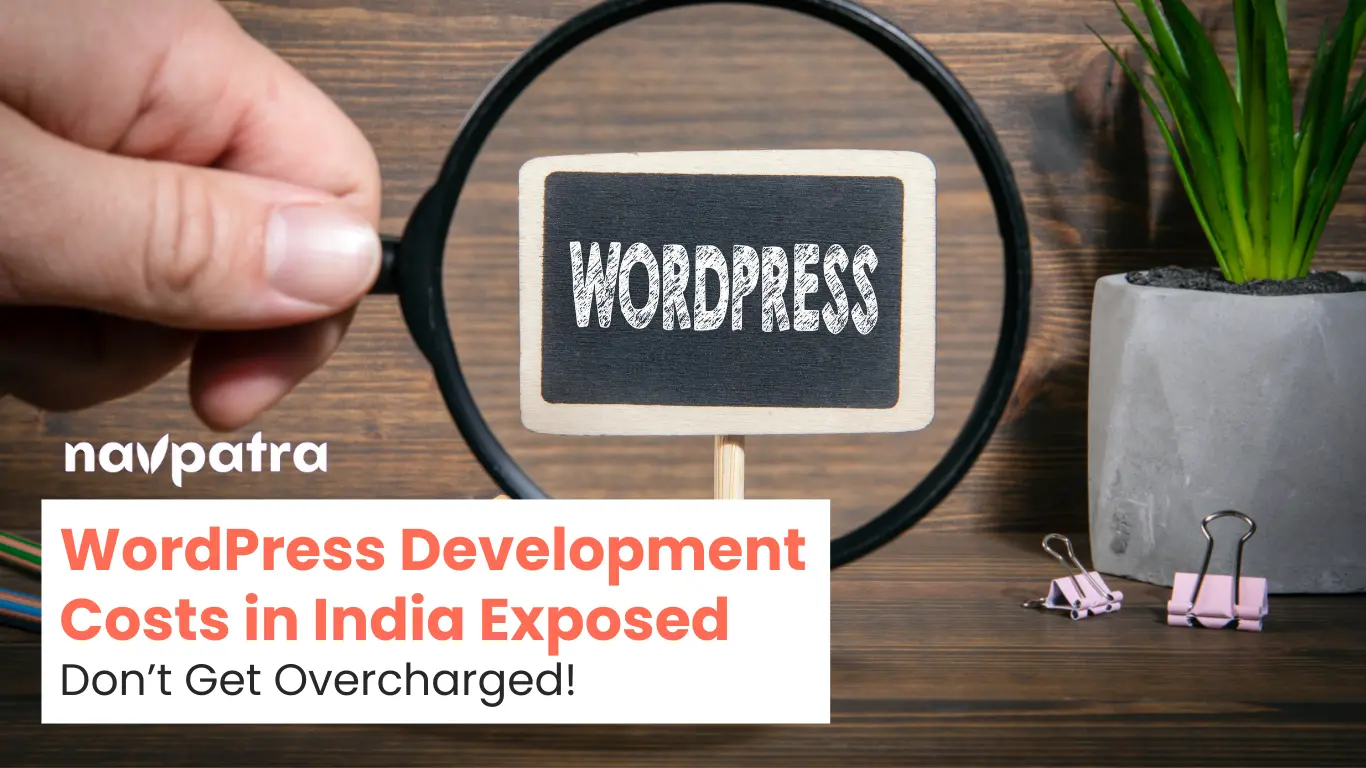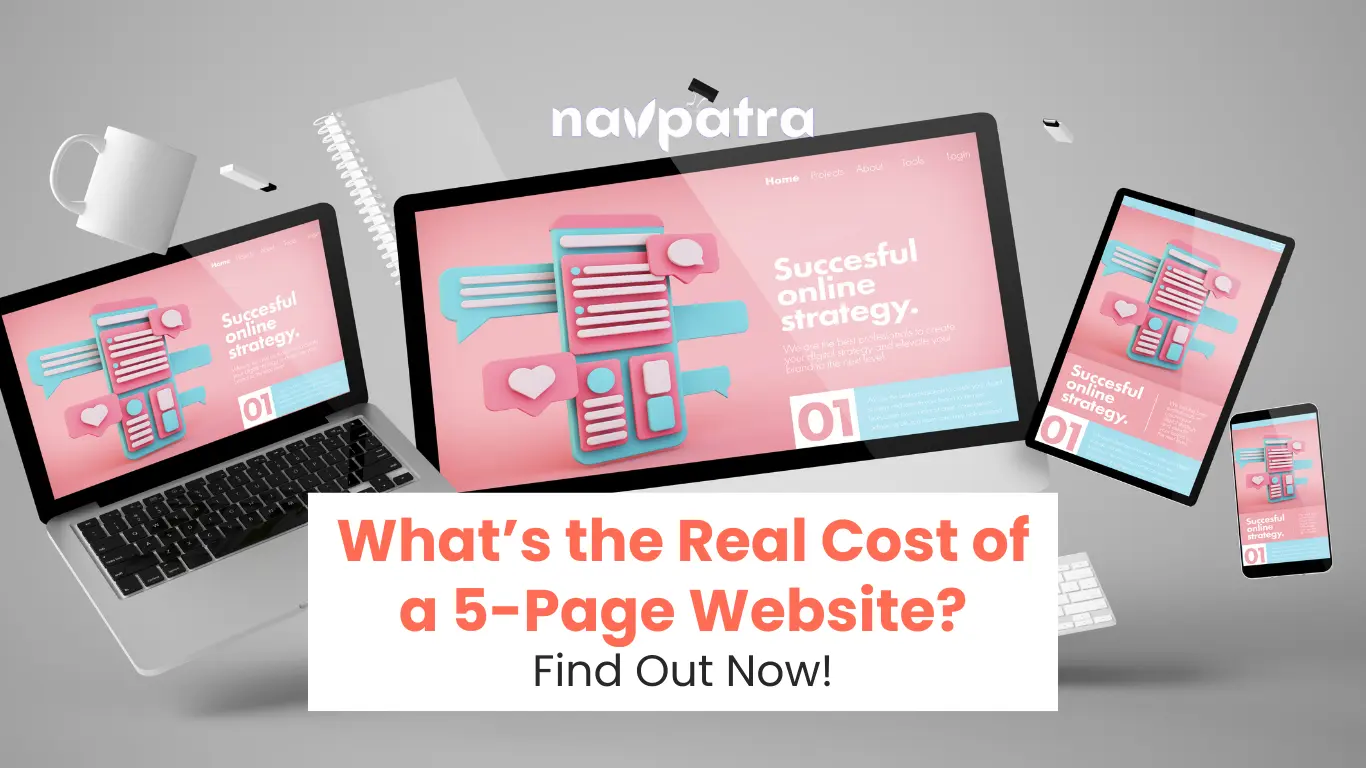A website is not just a digital address; it is your business’s best employee, working 24/7 to drive growth. Small businesses typically see 15–50% revenue growth (source: businessdasher) when they use their websites to engage with customers. Amazing right?
If you are a small business owner, you might wonder about the benefits of a website for small business. The answer is simple: a website opens doors to endless opportunities.
From attracting new customers to boosting your brand’s credibility, a website can transform your business. In this blog, we will explore 18 benefits of a website for small businesses that will inspire you to establish your digital presence.
Why Website is Important for Small Business?
A website is your 24/7 representative that attracts customers, builds credibility, and increases revenue. With a website, your small business can unlock opportunities that drive growth and success.
Let’s learn why a website is vital for your small business.
Builds Credibility

A well-designed website establishes your business as professional and trustworthy. Most consumers trust businesses with a website over those without one.
What can business owners do?
- Include professional branding, like a custom logo and a consistent color scheme.
- Add testimonials, certifications, or awards to demonstrate credibility.
Example: A local bakery with a website showcasing customer reviews and photos of custom cakes attracts more orders than one relying solely on word-of-mouth.
Enhances Online Visibility
If customers can not find you online, they may never find you at all. A website improves your visibility in search results, helping potential customers discover your business easily.
What can business owners do?
- Implement basic SEO practices like using relevant keywords, meta tags, and descriptive content.
- Register the website with Google My Business for enhanced local search visibility.
Example: A pet grooming service optimizes its site for “affordable dog grooming near me” and attracts local pet owners through search engines.
Expands Your Reach
A website lets you reach customers beyond your local area. If your products or services can be sold online, your market potential becomes global.
What can business owners do?
- Add e-commerce functionality to sell products.
- Use multilingual options to appeal to a wider audience.
Example: A handmade jewelry maker uses their website to sell internationally, doubling their sales within a year.
Insights: 38% of small businesses in the United States have a website to establish the credibility of services they provide.
Drives Leads and Sales
Your website is a powerful lead-generation tool. With optimized landing pages and CTAs, you can turn visitors into paying customers.
What can business owners do?
- Offer free resources like eBooks in exchange for email addresses.
- Use forms to capture leads.
Example: A real estate agency uses its site to collect contact details through a “Free Home Valuation” tool.
Builds Your Brand Identity
Your domain name and a responsive website design help establish your brand. A consistent and professional image across your site builds recognition and trust.
What can business owners do?
- Use custom graphics and branding elements.
- Maintain consistency in tone and messaging.
Example: A fashion boutique’s sleek, modern website mirrors its upscale branding, attracting high-end customers.
Acts as Your Business’s “Home Base”
Social media platforms are great, but they cannot replace a website. Your site serves as the foundation of your online presence, consolidating all your accounts and offering detailed information about your business.
What can business owners do?
- Link all social media accounts to your website.
- Use the site to provide comprehensive information, such as services, pricing, and FAQs.
Example: A fitness trainer’s Instagram account directs followers to a website with workout plans, class schedules, and membership packages.
Insights: 71% of small business have their own website that build brand identity and creadibility.
Boosts SEO Rankings
Search engine optimization (SEO) enables your business to rank higher on platforms like Google. A well-optimized website brings in organic traffic and increases visibility without additional ad spending.
What can business owners do?
- Regularly update the site with fresh, keyword-rich content.
- Use blogging to share expertise and attract search engine attention.
Example: A financial advisor blogs about “budgeting tips for families,” helping their website rank higher for financial planning queries.
Provides 24/7 Accessibility
Unlike a physical store with limited hours, a website works around the clock. Customers can browse your offerings, read about your services, and contact you anytime.
What can business owners do?
- Ensure the website is mobile-friendly for better accessibility.
- Offer self-service features like downloadable resources or FAQs.
Example: An event planner’s website allows customers to submit booking inquiries and browse venue options even during off-hours.
Saves Marketing Costs
Traditional marketing methods like print ads can be expensive. A website offers a cost-effective way to promote your business and share updates.
What can business owners do?
- Use email marketing to reach customers directly through the website.
- Post promotional offers and updates on a blog or homepage banner.
Example: A landscaping business saves money by advertising seasonal discounts and services exclusively through their website.
Insights: 43% of small businesses plan to invest in website performance.
Offers a Platform to Tell Your Story.

Every business has a unique story that helps build a connection with customers. Use your website’s “About Us” section to humanize your brand and engage your audience.
What can business owners do?
- Share the story behind starting the business.
- Highlight the team’s expertise and passion.
Example: A family-run coffee shop shares its history of sustainable sourcing, building a loyal customer base.
Enables Data Collection
With a website, you can gather valuable insights about your customers. Understanding visitor behavior helps you tailor your services and improve your marketing.
What can business owners do?
- Use analytics tools like Google Analytics.
- Collect visitor emails for newsletters.
Example: A digital marketing agency tracks which services pages get the most traffic, refining its offerings accordingly.
Supports E-commerce Opportunities
If you sell products, an e-commerce website lets you create an online store. This benefit allows businesses to serve customers who prefer online shopping.
What can business owners do?
- List products with detailed descriptions and high-quality images.
- Integrate secure payment gateways.
Example: A local bookstore launches an online shop, attracting readers who prefer ordering books from home.
Insights: 77% of consumers use Google Maps to find businesses near them.
Provides Easy Access to Information
Customers can find essential details about your business directly on your website, such as operating hours, contact info, and product specs.
What can business owners do?
- Keep the website’s information up to date.
- Create a dedicated FAQ section.
Example: A plumbing service adds emergency contact details on its homepage, helping customers during urgent situations.
Offers Customer Service Features
Websites can enhance customer service by including FAQs, chatbots, or contact forms, making your business approachable and accessible.
What can business owners do?
- Add a live chat feature to handle common questions.
- Provide multiple ways for customers to reach you.
Example: An IT support company resolves client queries faster with a chatbot available 24/7 on their website.
Helps You Stand Out
Many small businesses still lack a website. By having one, you gain a competitive edge and position your brand as a leader.
What can business owners do?
- Highlight unique offerings and expertise.
- Use visually appealing design elements.
Example: A cleaning service differentiates itself by showcasing eco-friendly practices and customer testimonials on its website.
Insights: About 34% of consumers are more likely to make unexpected purchases when they encounter personalized content.
Serves as a Sales Tool
Your website is like an additional salesperson. With clear calls-to-action (CTAs), you can encourage visitors to book services, buy products, or contact you.
What can business owners do?
- Add compelling CTAs like “Book Now,” “Shop Today,” or “Request a Quote.”
- Simplify the checkout process to reduce cart abandonment.
Example: A spa uses its website to offer online appointment booking, reducing no-shows and filling its schedule.
Adapts to Mobile Users
A mobile-friendly website ensures you cater to smartphone users, who make up a significant portion of internet traffic.
What can business owners do?
- Use a responsive design that adjusts to all screen sizes.
- Optimize loading speed for mobile devices.
Example: A food delivery service’s mobile-friendly site drives orders from users on the go.
Highlights Achievements
Showcase awards, certifications, and customer testimonials on your website to boost your credibility and reassure potential customers.
What can business owners do?
- Dedicate a page to “Achievements and Testimonials.”
- Regularly update this section with new accolades.
Example: An accounting firm gains trust by displaying industry certifications and client success stories on its homepage.
Insights: In the U.S., 31% of shoppers said they avoided small businesses that didn’t have a website.
5 Reasons Why You Need a Website
- Visibility: Most customers search for businesses online before making decisions.
- Credibility: A website establishes you as a legitimate, professional entity.
- Accessibility: Unlike physical stores, websites are available 24/7.
- Marketing: It is an affordable way to promote your services and products.
- Competition: Stay ahead by having an online presence when others don’t.
Insights: 81% of consumers do online research before buying a product or service.
What is the Main Goal of Your Website?
The main goal of a website varies based on the business type, but generally, it serves to:
Establish an Online Presence
A website acts as your digital storefront, ensuring customers can find your business online anytime. For example, a clothing store’s main goal might be showcasing its collection to attract potential buyers.
Generate Leads and Sales
Websites often aim to convert visitors into customers. By using clear calls-to-action (CTAs), like “Book a Demo” or “Shop Now,” businesses drive revenue. An online coaching platform, for instance, may focus on converting website visitors into course enrollees.
Provide Information
Websites educate customers about products, services, or industry trends. A software company might prioritize offering detailed product information and tutorials.
Enhance Customer Engagement
Many websites aim to build relationships through blogs, newsletters, or chatbots. For example, a fitness brand could use engaging blog posts and free workout tips to connect with its audience.
Conclusion
A website is the backbone of your small business’s online presence. From increasing credibility to boosting revenue, the 18 benefits of a website for small businesses can transform how you operate. Investing in a website today is investing in your future success.
A website is the key to improving customer engagement, increasing visibility, or growing sales.
So, create your professional website, and unlock the potential waiting for your small business!











